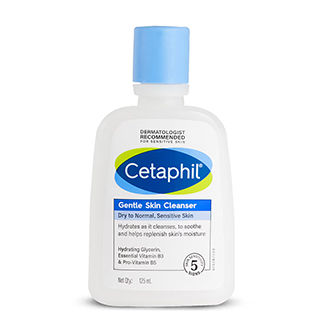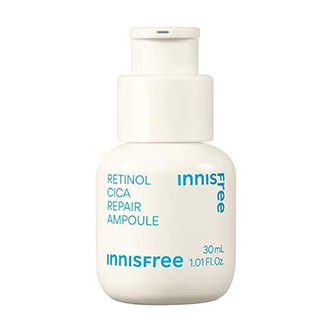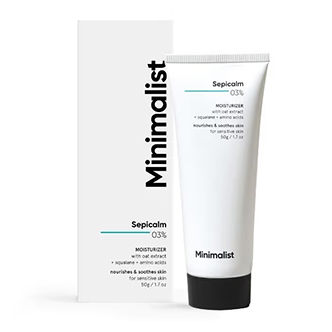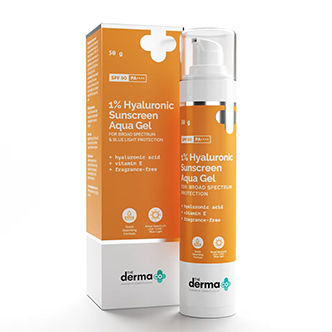
In This Story:
If there’s one thing in this world you shouldn’t provoke, it would be your sensitive skin. Triggering sensitive skin can lead to flare-ups that can fast-become a nightmare. We all know about the struggles sensitive skin girlies face, hence, such a skin type needs to be well taken care of. But before we delve into our simple 4-step routine, you must learn all there is to know about sensitive skin.
What Is Sensitive Skin?
Sensitive skin can be characterised by frequent skin flare-ups, itchiness, burning, and stinging, in the face of climate change, new cosmetics, fragrances, soaps, or any other environmental, physiological and mental stressor, according to a study. The visible signs of sensitive skin include hyperpigmentation, breakouts, redness, and rashes, among other telltale symptoms.
Why Does Sensitive Skin Need Special Care?
Findings suggest that there are several factors that can exacerbate sensitive skin, which is why this skin type demands special care.
-
Weak Skin Barrier
As compared to the normal skin type, sensitive skin has a weaker epidermal barrier, which means it’s more prone to damage, itchiness, and other irritants. Essentially, sensitive skin has poorer vitality and resilience.
-
Easily Aggravated
The slightest weather change, dust, pollution, fragrances, and even a dirty pillowcase can trigger sensitive skin. Hence, extra precaution is necessary to avoid breakouts or any other adverse reaction.
-
Irritation
Unlike dry and oily skin types, sensitive skin can cause physical irritation to the sufferer, be it in the form of itchiness or inflammation. Scratching or picking at the skin will only exacerbate the problem.
How To Manage Sensitive Skin
- Avoid hot showers; extremely hot water can irritate the skin, making it feel more itchy.
- Opt for fragrance-free formulations to limit irritation, redness, and rashes.
- Avoid using perfumes, harsh fabric softeners, and chemical-laden detergents.
- Never skip sunscreen; prolonged sun exposure can trigger sensitive skin.
- Never skip sunscreen; prolonged sun exposure can trigger sensitive skin.
CSMS Routine For Sensitive Skin
Cleanser For Sensitive Skin
Enriched with niacinamide, hydrating glycerin, and panthenol, this Cetaphil Lotion moisturises, protects, and repairs sensitive skin. It is fragrance-free and non-comedogenic, hence, it’s ideal for reactive skin types that are easily triggered.
Nykaa Recommends:
Serum For Sensitive Skin
This Innisfree serum is formulated with retinol and hyaluronic acid and helps reduce blemishes and pigmentation that may appear as a result of rashes, sunburn, or breakouts. This ampoule is known to soothe sensitive skin, reduce patchiness, and even out a rough and bumpy skin texture.
Nykaa Recommends:
Moisturiser For Sensitive Skin
Prepared with oats and 3% sepicalm, this Minimalist Face Moisturiser soothes, hydrates, and softens the skin. It is lightweight, non-greasy, and super hydrating and nourishing. It also calms irritated, itchy, and dry skin and acts as a protective barrier against sun exposure.
Nykaa Recommends:
Sunscreen For Sensitive Skin
Formulated with five UV filters, this sunscreen is fragrance-free, deeply moisturising, and safe for sensitive skin. It also offers broad-spectrum, blue light protection and hydration, owing to the presence of vitamin E and hyaluronic acid.
Nykaa Recommends:
Parting Thoughts
Sensitive skin has a weaker epidermal barrier and thus requires special attention. Sensitive skin types will likely experience excessive dryness or oiliness, so you must make sure your formulations tend to both concerns. Steer clear of fragranced products and harsh chemicals to avoid flare-ups!
FAQs
-
How to control skin sensitivity?
Avoid hot showers and harsh, fragrant skincare products, keep your skin moisturised, don’t skip sunscreen, and never sleep with makeup on.
-
Can I get rid of sensitive skin?
Yes, and no. While you can’t change your skin constitution at the molecular level, you can control sensitivity by caring for your skin properly. Dry, oily, and acne-prone skin types may also experience sensitivity from time to time and with the right products, routine, and consistency, one can prevent the condition from exacerbating.
-
Is sensitive skin genetic?
While sensitive skin is usually genetic, you may develop sensitivities as you age. Issues like asthma, allergies, eczema, and other concerns can become a problem for adults who’ve previously had healthier skin. Several factors including diet, stress, and hormonal fluctuations can be responsible for this.




